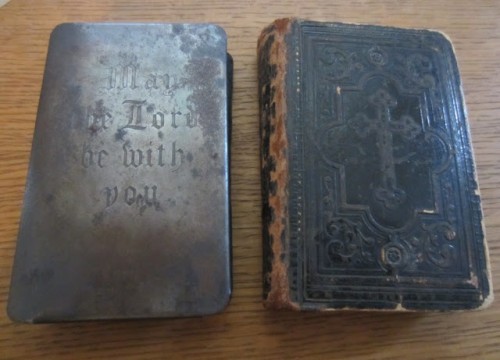“Faith,” Colen Thomas (WWII-057)
By Arielle Heinke, Intern
Religion had always been an integral part of Colen Thomas’ life, and after his enlistment, his faith became a guiding force which shaped his attitude and decision-making about the war. It was his unwavering faith that carried him through his bloody tour through the Pacific Theater. In a momentous decision, Thomas pushed his commanding officers to switch him from a non-combative unit into a combative unit:
Before I decided to go up there and see if I can get in with them, I had a talk with God: I went out, and I prayed to see if I should do this. In my prayer, I realized that I would not get killed; I would not get seriously wounded. I decided to try to join them.
-Colen Thomas, WWII-057
Thomas’ survival in itself was a miracle that he attributed to his faith in God, intuition, and sheer luck. During combat, he made his decisions with a confidence and self-possession where most men would falter. He claimed God was with him throughout the entirety of his service, and in specific instances of danger, he would feel the presence of God around him. He also recalled his reliance on prayer to keep his spirits lifted, stating “I did an awful lot of praying, an awful lot, and that was the greatest thing with me, the greatest thing.” He was not alone in this respect. Many enlisted men used religion as a crux during war to keep their morale up and give them comfort in times of terrible danger.
Thomas perpetuated an attitude reflective of the Christian status quo of 1940’s America. When he encountered a man who identified himself as an atheist, Thomas exclaimed in surprise “we’ve all got to believe in God; we’re in combat.” Thomas crystallized his World War II experience by his patriotic drive to defend his country, his strong belief in God, and his deep connection and sense of obligation to his comrades. After the war, he remained loyal to these values.

Photo donated to the Samuel Proctor Oral History Program by Colen Thomas. For additional information about these and other histories, contact SPOHP, call the offices at (352) 392-7168, and connect with us online today.